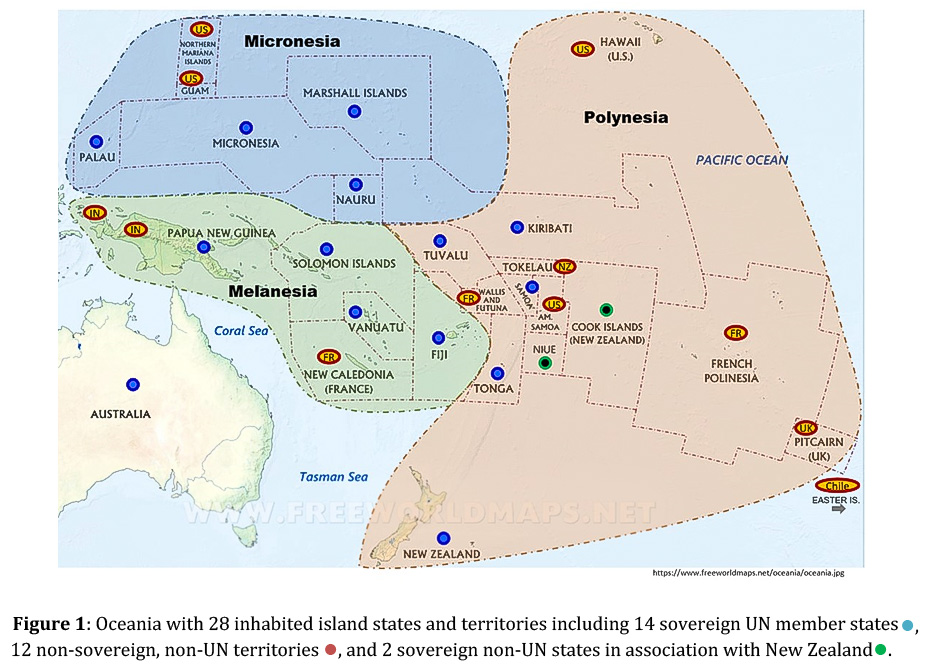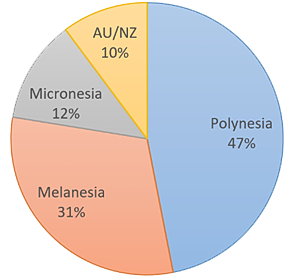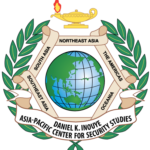By Deon Canyon *
Australia, Cook Islands, Fiji, Nauru, New Zealand, Tonga and Samoa founded the Pacific Islands Forum (PIF) as the South Pacific Forum in 1971 and it has come to be considered the primary agency for regionalism in Oceania (Fig 1). Up until recently, its membership comprised the 14 sovereign United Nations member states (Australia, Federated States of Micronesia, Fiji, Kiribati, Nauru, New Zealand, Palau, Papua New Guinea, Republic of Marshall Islands, Samoa, Solomon Islands, Tonga, Tuvalu and Vanuatu); the 2 non-sovereign territories (French Polynesia and New Caledonia); and the 2 sovereign non-UN member states in association with New Zealand (Cook Islands and Niue).
Twenty years later, in 1992, PIF held a summit for Smaller Island State Leaders from Cook Islands, Federated States of Micronesia, Kiribati, Nauru, Niue, Palau, Republic of the Marshall Islands, and Tuvalu in recognition of their vulnerabilities, due to small size and lack of natural resources, and long-term sustainable development needs.
Thirty years later, in 2021, the small island states that make up Micronesia were crushed when the “long-standing convention – known as the ‘gentlemen’s agreement’ – the leadership of the Pacific Islands Forum cycles through the three major sub-regions across the Pacific: Melanesia, Polynesia and Micronesia” was abrogated when former Cook Islands Prime Minister Henry Puna was elected in Feb 2021 ahead of Marshall Islands Ambassador to the UN, Gerald Zackios.
As a result, the Micronesian states (Federated States of Micronesia, Kiribati, Nauru, Palau, Republic of Marshall Islands), decided to disassociate themselves from PIF due to a failure of the PIF member nations to honor traditional agreements on PIF leadership.
However, while there may have been a recent gentlemen’s agreement, there is no long-standing convention for leadership rotation as can be seen in Box 1.
Box 1: Changes of leadership since the beginning of PIF
- 1972-1980 Tonga: Mahe Tupouniua
- 1981-1982 Papua New Guinea: Gabriel Gris (died in office)
- 1982-1983 Australia: John Sheppard (acting)
- 1983-1986 Tonga: Mahe Tupouniua
- 1986-1988 Tuvalu: Henry Naisali
- 1988-1992 Tuvalu: Henry Naisali
- 1992-1998 Kiribati: Ieremia Tabai
- 1998-1999 Papua New Guinea: Noel Levi
- 1999-2004 Papua New Guinea: Noel Levi
- 2004-2008 Australia: Greg Urwin
- 2008-2008 Tuvalu: Feleti Teo (acting)
- 2008-2014 Samoa: Tuiloma Neroni Slade
- 2015-2018 Papua New Guinea: Dame Meg Taylor
- 2018-2021 Papua New Guinea: Dame Meg Taylor
Power sharing since 1971 has not been consistently shared (Fig 2) between the cultural regions of the Pacific or between nations in those regions. It has heavily favored 3 Polynesian nations (Tonga, Tuvalu, and Samoa) followed by 1 Melanesian nation (Papua New Guinea).
Figure 2: Sharing of the PIF chair between the four ethnic sub-regions in Oceania
Neither has the chair position been consistently rotated between the cultural sub-regions at any time in the organization’s history (Fig 3).
Figure 3: Rotation of the PIF chair through the four ethnic sub-regions in Oceania.
PIF’s vision is for “a region of peace, harmony, security, social inclusion and prosperity, so that all Pacific people can lead free, healthy, and productive lives.” However, PIF’s failure to practice equitable inclusion is not the Pacific Way and does not result in harmony. If the Pacific Islands Forum truly considers itself representative of all the Pacific Island states, it should consider the following recommendations.
Recommendations for resolution
- An agreement was perceived to have been made and broken, thus details surrounding the “Gentlemen’s Agreement” for chair rotation must be made transparent and public
- Systematically rotate the chair around the sub-regions as per the “Gentlemen’s Agreement”
- Put a stop to awarding double-term chair periods, which only serve to favor select nations
- When it comes to a sub-region’s turn, the Chair should rotate around the nations in each sub-region instead of skipping many nations in preference of a few – even the ASEAN chair rotates to all of its constituent nations
- The PIF chair period could be shortened to one year to make it more symbolic and to enable many more nations to participate and guide PIF in a significant way
- Now that PIF has been functioning well for a long time, it is an opportune moment to
consider membership options that would expand and enhance the voice of smaller Pacific Islands states
Micronesia’s planned withdrawal from PIF is a defining moment in Pacific history. PIF’s loss of an entire sub-region constitutes an incredible set-back for regional identity, regional security, and detracts significantly from the PIF’s Blue Pacific Continent concept. Since the Blue Pacific has not produced any substantial benefits yet, there is no significant downside for Micronesia, only for PIF and its agenda to promote regionalism.
If the PIF does not wish to return to its former designation of South Pacific Forum, now is the time for it to urgently take advantage of the opportunity to remake the forum into a vehicle that better represents all Pacific Islanders and nations. Carrying on without Micronesia would be a grave error that will continue to undermine Pacific regionalism well into the future.
* Dr. Canyon is a professor at the Daniel K. Inouye Asia-Pacific Center for Security Studies (DKI APCSS) in Honolulu, USA.
The views expressed in this article are the author’s alone, and do not necessarily reflect the official position of the DKI APCSS or the United States Government.
Published: February 25, 2021
Category: Perspectives
Volume: 22 - 2021
Author: Deon Canyon








